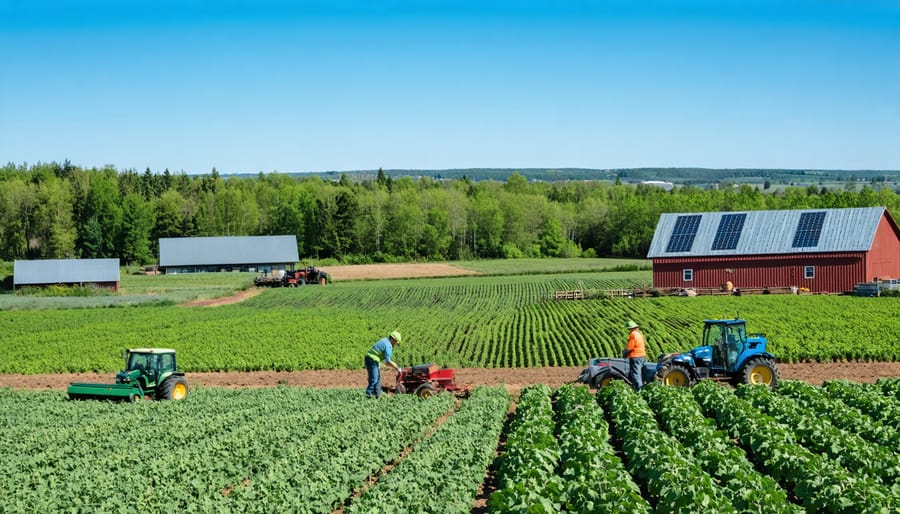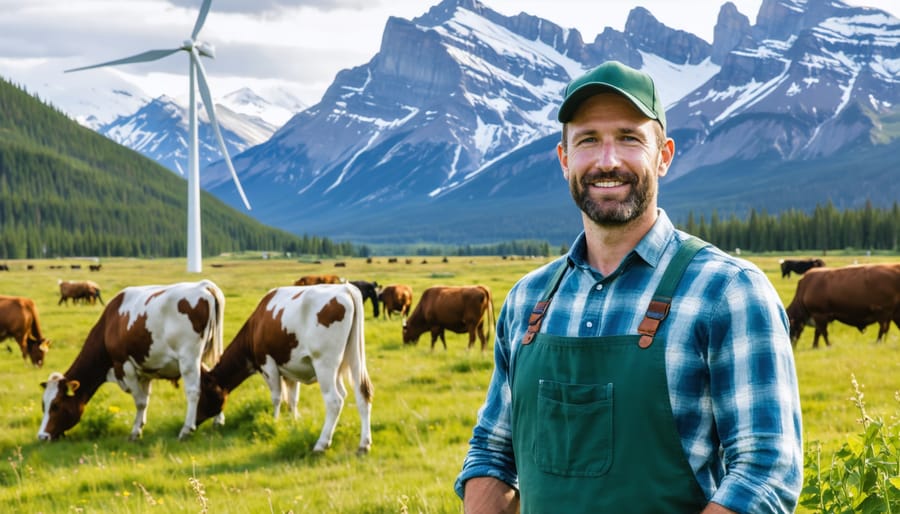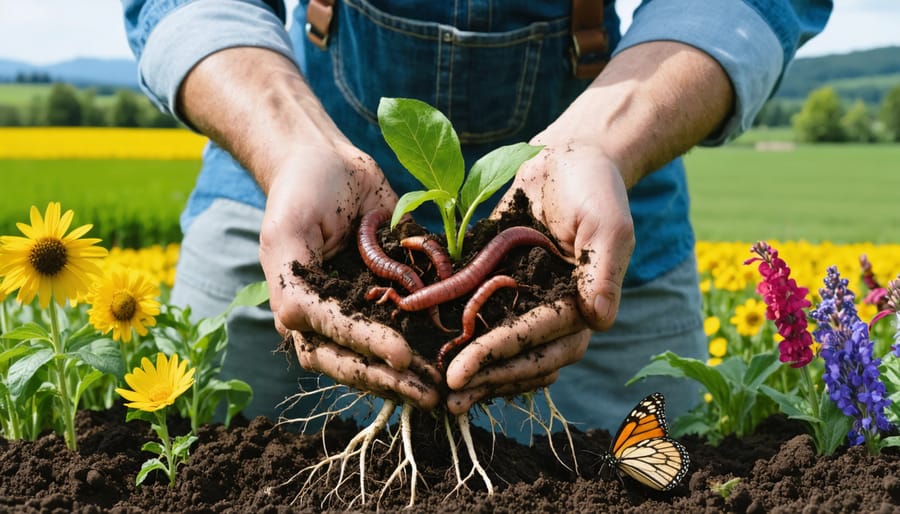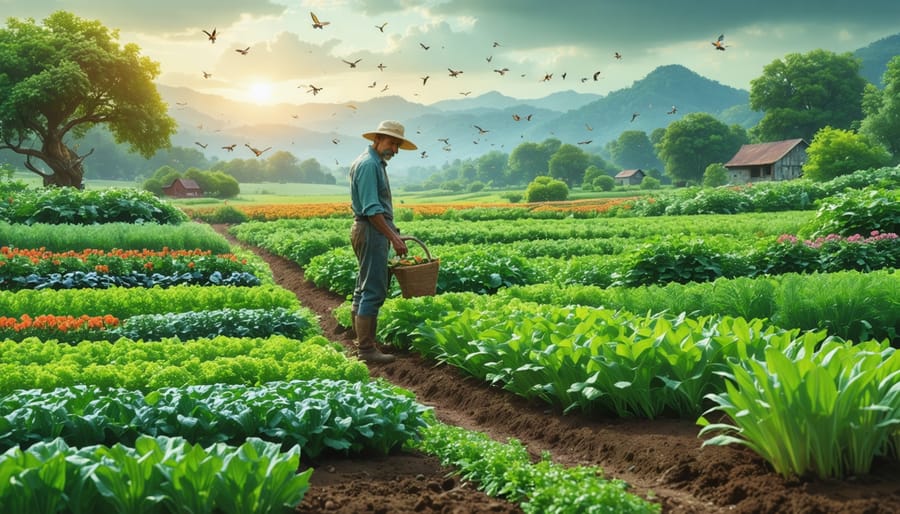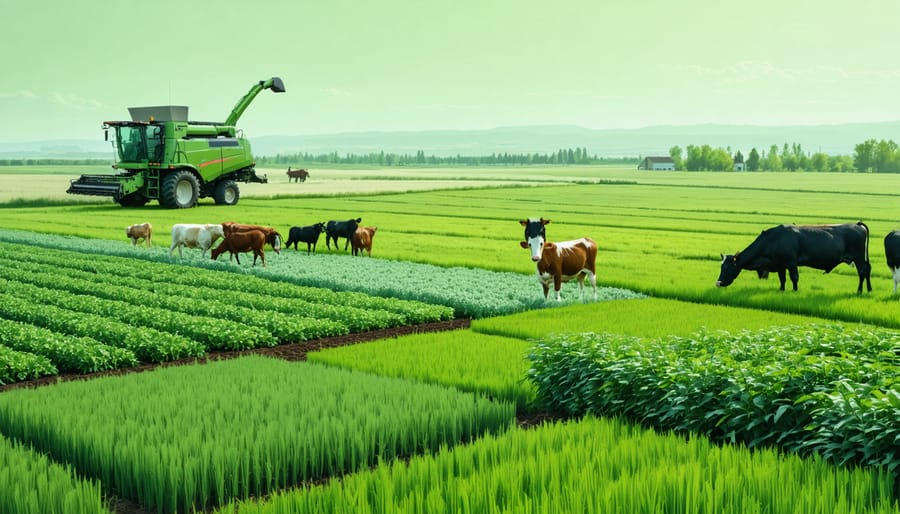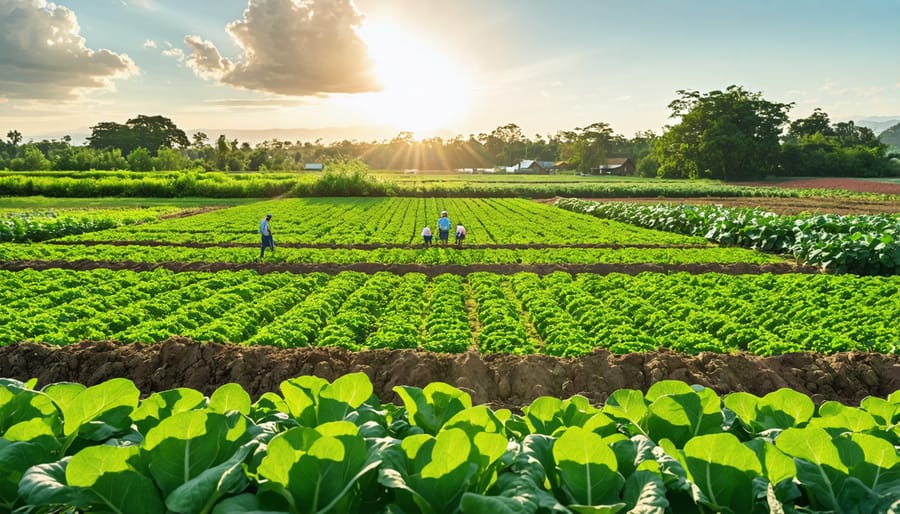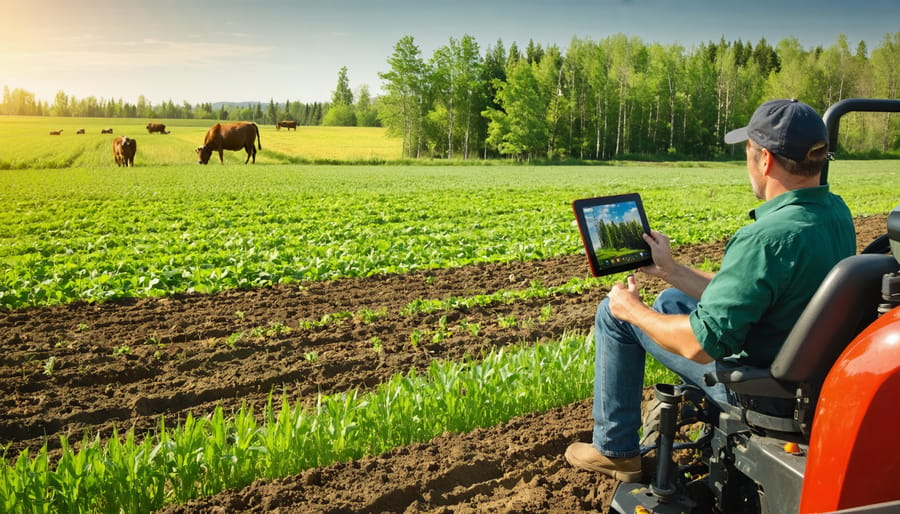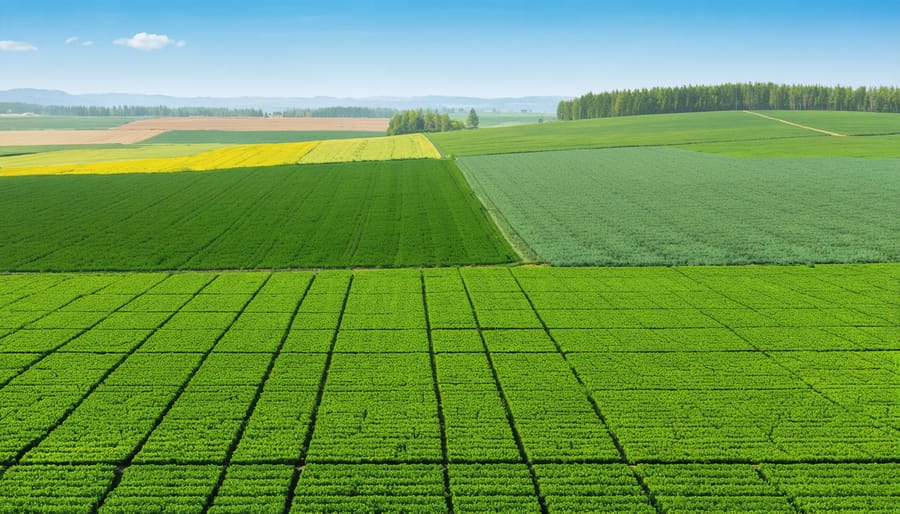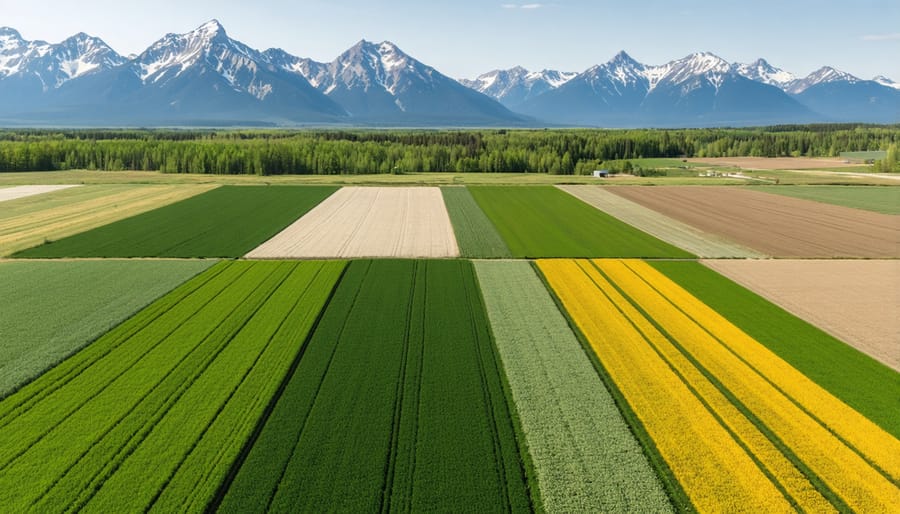Alberta’s tier system for classifying municipalities based on population and revenue is a critical framework shaping the province’s local governance. This introduction delves into the intricacies of the Alberta tier system, illuminating its impact on municipal funding, service delivery, and regional dynamics. By unpacking the tier criteria and their real-world implications, we shed light on a foundational aspect of Alberta’s municipal landscape that is often misunderstood. Through insightful analysis and expert perspectives, this article serves as an essential primer for anyone seeking to grasp the nuances of how Alberta’s cities, towns and villages are categorized – and why it matters for the future of the province.
The Challenges Facing Alberta Farmers
Climate Change Impact
Climate change is already having a noticeable impact on Alberta’s agricultural landscape. Rising temperatures and shifting precipitation patterns are leading to more frequent and intense droughts, which can significantly reduce crop yields and place additional stress on livestock. At the same time, extreme weather events like heavy rainfall and hail are becoming more common, damaging crops and eroding soil.
These changes are prompting many Alberta farmers to explore more sustainable and resilient agricultural practices. Organic farming, with its focus on building healthy soils and promoting biodiversity, offers a promising solution. By minimizing the use of synthetic inputs and emphasizing practices like crop rotation and cover cropping, organic farmers can help their land better withstand the challenges posed by climate change.
Moreover, organic farming has the potential to mitigate climate change by sequestering carbon in the soil. As Alberta looks to reduce its greenhouse gas emissions and adapt to a changing climate, supporting the growth of organic agriculture could play a key role in creating a more sustainable future for the province’s food system.
While transitioning to organic practices can be challenging, Alberta’s farmers are known for their resilience and innovation. With the right support and resources, they have the potential to lead the way in developing climate-smart agricultural solutions that benefit both their communities and the environment.
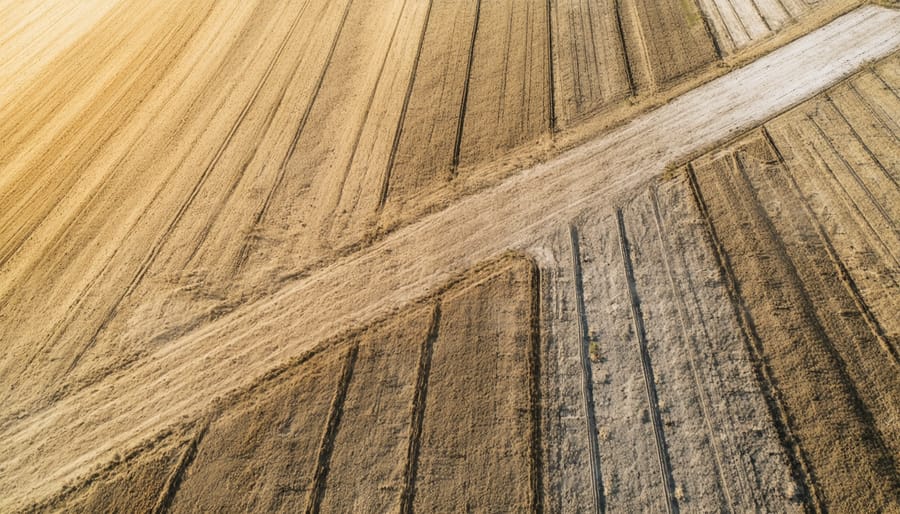
Soil Health Concerns
Soil health is a growing concern in Alberta, with intensive agricultural practices and changing climate conditions taking a toll on the province’s fertile lands. Degraded soil structure, reduced organic matter, and nutrient depletion are among the key issues affecting crop yields and long-term sustainability. Soil compaction, caused by heavy machinery and over-tilling, hampers root growth and water infiltration, leading to decreased productivity. Moreover, the loss of beneficial microorganisms and earthworms disrupts the delicate balance of soil ecosystems, further compromising soil health.
The implications of poor soil health extend beyond individual farms, as it impacts the overall resilience and profitability of Alberta’s agricultural sector. Reduced crop yields and quality translate to lower incomes for farmers and potential food security concerns for the region. Furthermore, degraded soils are more susceptible to erosion, increasing the risk of nutrient runoff and water pollution, which can have far-reaching environmental consequences.
To address these concerns, farmers in Alberta are increasingly turning to sustainable practices such as cover cropping, reduced tillage, and diverse crop rotations. By prioritizing soil health, they aim to rebuild organic matter, improve soil structure, and enhance nutrient cycling, ultimately leading to more resilient and productive agricultural systems. Collaborative efforts between farmers, researchers, and government agencies are crucial in developing and promoting best practices for soil health management, ensuring a sustainable future for Alberta’s agriculture.
Organic Farming: A Sustainable Solution
Reducing Carbon Consumption
Organic farming in Alberta emphasizes sustainable practices that minimize carbon consumption and promote environmental stewardship. One key strategy is crop rotation, which involves alternating crops each season to improve soil health, reduce pest pressure, and minimize the need for synthetic inputs. By planting nitrogen-fixing legumes like peas and lentils, farmers can naturally enhance soil fertility and reduce reliance on energy-intensive fertilizers.
Another effective approach is conservation tillage, which minimizes soil disturbance and preserves organic matter. Techniques like no-till or reduced tillage help sequester carbon in the soil, improve water retention, and reduce fuel consumption associated with frequent plowing. Many organic farmers in Alberta have adopted these practices, contributing to a smaller carbon footprint.
Composting is also integral to organic farming’s carbon reduction efforts. By recycling organic waste from crops and livestock, farmers create nutrient-rich compost that enhances soil health and fertility. This closed-loop system reduces the need for external inputs and minimizes greenhouse gas emissions associated with transportation and production of synthetic fertilizers.
Furthermore, organic farmers often prioritize local distribution networks, reducing the carbon emissions linked to long-distance transportation. By selling produce directly to consumers through farmers’ markets or community-supported agriculture (CSA) programs, organic growers in Alberta are fostering a more sustainable and resilient food system.
As Albertan organic farmer, Sarah Thompson, explains, “By focusing on soil health, crop diversity, and local markets, we’re not only reducing our carbon footprint but also building a stronger connection with our community and the land we steward.”
Through these varied strategies, organic farming in Alberta demonstrates its commitment to reducing carbon consumption and promoting a more environmentally friendly agricultural model for the region.

Improving Soil Health
Organic farming techniques play a crucial role in improving soil health and fertility in Alberta. By adopting practices such as crop rotation, cover cropping, and composting, farmers can enhance soil quality and promote a thriving ecosystem beneath the surface. Crop rotation helps to break pest and disease cycles, while also improving nutrient availability and soil structure. Cover crops, such as legumes and grasses, protect the soil from erosion, suppress weeds, and add organic matter when incorporated into the soil. Composting transforms farm waste into a valuable soil amendment, rich in nutrients and beneficial microorganisms. These techniques work together to increase soil organic matter, improve water retention, and support a diverse community of soil organisms. By prioritizing soil health, organic farmers in Alberta are building a foundation for sustainable, resilient agriculture that can withstand the challenges of a changing climate. Investing in the long-term well-being of our soils is not only essential for the success of individual farms but also for the future of our food system and the health of our communities.
The Organic Farming, The Canadian Way Initiative
Educational Resources and Workshops
The Alberta Tier initiative offers a range of educational resources and workshops to support farmers in adopting organic practices. These learning opportunities are designed to be accessible, practical, and tailored to the specific needs of Alberta’s agricultural community. Farmers can attend in-person workshops led by experienced organic practitioners, where they can gain hands-on experience and learn about topics such as soil health, crop rotation, and natural pest management. Online resources, including webinars, case studies, and expert interviews, provide flexible learning options for those unable to attend workshops. The initiative also facilitates peer-to-peer learning through farmer networks and mentorship programs, allowing participants to share knowledge and experiences. By engaging in these educational activities, farmers can develop the skills and confidence needed to successfully transition to organic farming and contribute to a more sustainable agricultural future in Alberta.
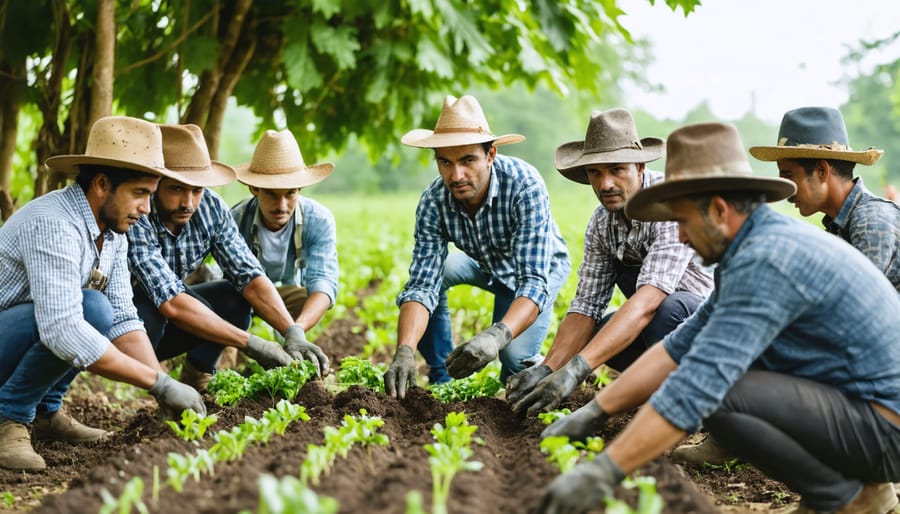
Expert Involvement and Community Empowerment
The Alberta Tier initiative brings together a diverse group of experts, including agronomists, soil scientists, and experienced organic farmers, to share their knowledge and support the rural community’s transition to sustainable practices. Through workshops, field days, and mentorship programs, these experts provide hands-on guidance and practical solutions tailored to the unique challenges faced by Alberta’s farmers. By fostering collaboration and knowledge exchange, the initiative empowers farmers to make informed decisions and adopt organic farming techniques that enhance the resilience and productivity of their land. This community-driven approach not only strengthens the social fabric of rural Alberta but also promotes a sense of pride and ownership in the region’s agricultural heritage. As more farmers embrace organic practices and share their successes, the Alberta Tier initiative aims to create a ripple effect of positive change, inspiring future generations to prioritize sustainability and stewardship of the land.
Conclusion
Organic farming represents a promising path forward for Alberta’s agricultural sector, offering a sustainable and environmentally responsible approach to food production. By embracing organic practices, Alberta farmers have the opportunity to not only enhance the health and resilience of their land but also contribute to a more secure and sustainable food system for future generations. The journey towards a thriving organic farming community in Alberta requires the collective efforts and support of farmers, consumers, and policymakers alike. We encourage all readers to actively engage in this transformative movement by choosing to support organic products, advocating for policies that promote organic agriculture, and spreading awareness about the benefits of organic farming. Together, we can build a vibrant and prosperous organic farming landscape in Alberta, ensuring a healthier future for our land, our communities, and our planet.

